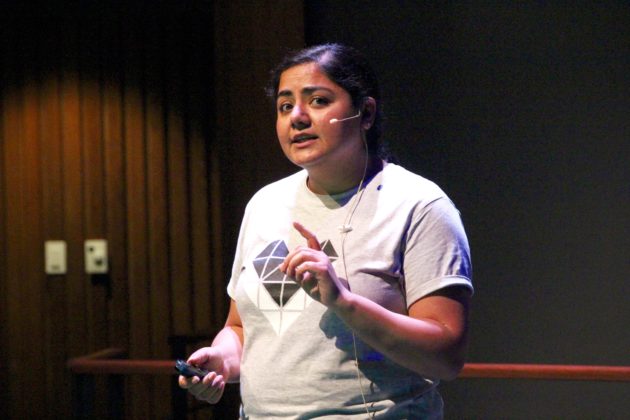Six years ago, Aditi Shekar and her boyfriend Dalmar moved into their first apartment together, each making very different incomes. Invariably, the question about how to share finances came up, yet neither of them could find great resources to answer it. When they sat down to build a shared budget, they couldn’t find a single tool that solved for their use-case.
Instead, they ended up creating a spreadsheet that Aditi built (and Dalmar constantly broke). Being a product person, Aditi knew technology could fix this and take over the grunt work of managing money as a couple.
So she went ahead and build it. Zeta is a tool that helps couples manage their finances together.
The millennial generation is fundamentally changing the way couples handle finances in their relationships. In fact, more than 63% of millennial couples chose to keep some money separate. And yet, there isn’t a single established tool that caters to these couples.
We sat down with Shekar to talk about her business, raising a pre-seed round of funding, taking advice, supportive spouses and managing finances with your significant other.
How did you take your idea and make it into the product we’re seeing today?
A lot of iteration! Because of my product background, my first instinct was to talk to as many people as I could to understand if this was something they were also struggling with. I wanted to make sure I wasn’t building a product for just Dalmar and I. When talking to these couples, we discovered that millennials have a few different approaches to managing their money. And that insight helped us build a product that could cater to those different “merge models” as we describe them.
Next, I put up a landing page and shared it on Facebook and Product Hunt to test demand. We had 400 couples sign up in a week, which led to the realization that the problem was way more severe than I’d thought. Those early users helped us dive even further into the problem and identify the first use-case/features that we ended up prioritizing.
From there, it was about finding the right team to work with. I’m incredibly lucky to have worked with some amazing colleagues in the past. These folks literally signed up based on a vision and a passion for improving the financial lives of couples everywhere. During this time, I was focused on trying to build a diverse team because I believed (and still do!) that that diversity (cultural, socio-economic, relationship type, gender, race) would be critical in our product development process.
To sum it up, I’d say our formula was deep understanding of our user + focus + diverse and complementary team.
You’re currently looking at your pre-seed round. How are you prepping? What are the good, bad and ugly parts of this process?
Fundraising is a lot like running a business development process. You need to identify who is most likely to partner with you, how to best get introduced to them, how to share your story with them, and how to select the right partners for the long-run. Running through that process takes a lot of work and discipline. You can’t (and shouldn’t) try to take shortcuts.
I personally really enjoy the process because I get to talk to really smart people who help me see the strengths and weaknesses of my business. These conversations have helped me refine our approach, focus on the current hypothesis we’re trying to prove out and then punt on some of the other stuff.
But fundraising also really tests your conviction and tenacity – you have to keep at it even when some very smart people are telling you that the idea won’t work or your competitors will beat you. My approach has been to take from the conversations the nuggets that help you build a better business and tune out the rest. One of the most important decisions you’ll make as an entrepreneur is whose advice to take.

You have a customer “braintrust”. Could you tell us more about that? Why should other founders build this into their companies?
When we had our first group of users sign up (pre-product), we knew that we needed a lot more detail on their finances. We were asking deeply personal questions that sometimes bordered on the uncomfortable.
When I read about the Customer Advisory Board (CAB) approach from Peter Kazanjy on First Round’s newsletter, I figured the approach might help us. It inspired me to start a CAB of our own and use it to do deep research and iteration with our users. While there are definitely downsides to this approach, it’s one that really helped us narrow in on the use-cases that we chose to solve for.
What are some of the tactics you’ve used to streamline your business processes as a founder?
I’m an efficiency nut, which isn’t always possible when you’re doing non-scalable things in the early days. So rather than trying to force efficiency in our processes, I tried to get efficiency in my time – making it possible to dedicate as much time needed on the creative process of early product development.
My main area of focus for streamlining our work was my personal life – my husband (yes, the boyfriend I had when I first started this!) and I had really candid conversations about where I’d have to pull back, and discussed services and products that we’d need to sign up to help us adjust.
We got a dog walker, we signed up for Plated, and we even got a virtual assistant to help us with our errands/chores. Let it be known that I think the most underrepresented people in entrepreneurship are spouses. They’re the ones who have to take on the brunt of work at home, serve as our support systems through the rollercoasters, and are our champions no matter what. Having a supportive partner who was willing to do the hard work to support me has been fundamental in this journey!
What’s been the hardest thing about being a founder? Why do you still get up in the morning?
Everything is hard! It’s not easy bringing a vision to life and there are many, many challenges that get thrown your way. I think inevitably it’s about sticking with it, staying focused on what you’re trying to accomplish and not giving up until you really think there’s no other path forward. Honestly, it’s something I have to constantly remind myself because the journey is by no means an easy one.
And of course, top three tips for managing money with your significant other (Inquiring minds want to know!)?
I’m so glad you asked! I’ve written quite a bit on this here and here but here are my top three tips:
- Get on the same page. You should take the time to talk about each of your personal approaches to money. I built a fun 20-questions game on Refinery29 which walks you through questions to ask each other to learn about your individual money personalities.
- Set some ground rules. Once you know more about how each of you approaches finances, set some loose rules on how you want to handle your shared money. For example, how do you want to merge your finances? Do you want to establish spending limits that you agree to check in on before charging? How do you want to support your shared goals and your personal goals? These are often the areas where conflict arises in relationships and the more you discuss it up front, the less guessing/tension you’ll have!
- Check in on your finances with a money date. I can’t say this enough! The most successful relationships report checking in on their finances often (but not too often). I’d recommend setting up a weekly/monthly money date cadence where you sit down and talk about your spending, debt and path towards your goals. These conversations will help you understand what is working, where you need to cut back or let loose, or where you might need some help. My husband and I are great about pairing our monthly money dates with SF’s best chocolate molten lava cakes!

